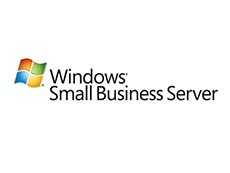Has Microsoft removed choice for SMEs?
Just what is a small business to do for an email solution now that support for the product that bore its name has been put out to pasture?
In retiring Small Business Server 2011, Microsoft has been accused by some of eliminating choice and dictating its vision for cloud-based email on millions of users worldwide. So what actually does the future hold for small companies who have grown up with SBS?
Exchange no longer part of the deal
Since 1997, Microsoft has been offering its latest server operating systems bundled together with the latest version of its Exchange mail server and sold it as ‘small business server’. SMEs had grown pretty used to this formula, as well they might. After all, their name was on the product and it satisfied 95% of the IT demands of their business.
But since the withdrawal of SBS 2011, the IT landscape looks a little different. The replacement in the small business space is now Windows Server 2012 Essentials, but this product contains no built-in email system at all.
To the cloud and beyond
So what is the recommended solution for a small business in 2014? Well, one cost-effective solution, and the one being actively encouraged by Microsoft, is to maintain your local file store on an on-premise server whilst moving your email delivery into the cloud. Guess what? Windows Server 2012 Essentials integrates perfectly with Office 365 if this is the route you wish to take.
Of course, we rely on email communication more today than ever before and there are some very good reasons why a small business may wish to consider a public cloud offering. Organisations of any size who run their email system on a single broadband line and rely on power to their office premises to ensure their server remains responsive know that this setup is no match for the resources of an online data centre.
What’s more, many small business have inadequate disaster recovery plans – indeed, archiving and backing up on-premise servers can be very costly. So a cloud model might save admin time and ensure higher availability by passing the responsibility for uptime to your ISP.
Online versus on-premise
But the cloud is not for everyone and some organisations may wish to retain the control they perceive of having email stored on a local on-premise server – particularly where there are privacy concerns or other specific legal considerations. These organisations will pay for the privilege since they will have the additional expense of Exchange now, but this will provide them with added functionality.
For example, Exchange 2013 comes with sophisticated content filtering which can enhance the protection of your company’s confidential data. So a small business with strict compliance requirements may opt for Windows Server 2012 Essentials with Exchange rather than Office 365 mailboxes.
So whilst it is not strictly true that Microsoft has removed choice, it has rather loaded the pricing in the direction it wants SMEs to take. That said, Windows Server 2012 Essentials can only serve a maximum of 25 users anyway, so larger companies will need to consider other alternatives.
If you feel you need to discuss your own server or email upgrade options please do not hesitate to contact EC-MSP on 020 3582 7518.




